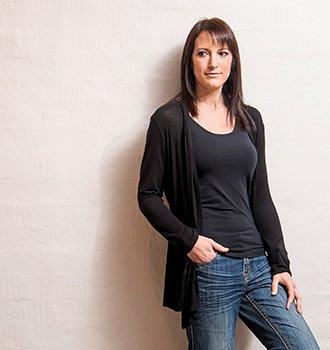Latest News Archive
Please select Category, Year, and then Month to display items
08 November 2024
|
Story Jacky Tshokwe
|
Photo Supplied
 The Kingdom Vision Foundation (KVF) management team took part in the annual Social Impact Innovation Awards organised by the SAB Foundation.
The Kingdom Vision Foundation (KVF) management team took part in the annual Social Impact Innovation Awards organised by the SAB Foundation.
In September, the Kingdom Vision Foundation (KVF) management team took part in the annual Social Impact Innovation Awards, organised by the SAB Foundation. This competition included a three-day workshop, during which participants received mentorship on enhancing their business models to maximise sustainable impact. Participants also crafted a four-minute business pitch, which they delivered to a panel of independent judges from sectors such as business, health, education, and government. At the end of the workshop, winners were chosen based on the impact of their innovation, the strength of their business model, and the likelihood of future success.
On 10 October, the management team attended the Innovation Awards Ceremony, where KVF was honoured with the Development Award worth R700 000. In addition to the grant, KVF will participate in a 15-month business coaching and mentorship programme in 2025, through which the SAB Foundation’s coaching team will support them in expanding and scaling their impact across South Africa.
The funding will enhance both the Kovsie Health and Anchor of Hope eye clinics, which are collaborating with the University of the Free State (UFS) Department of Optometry to provide affordable eye care to thousands of students and community members. The project aims to improve the quality of education for Optometry students, helping them experience the positive change they can drive through social impact. KVF’s vision includes a future at Kovsie Health where every student’s visual needs are met, regardless of financial constraints, and a thriving Anchor of Hope clinic that brings the gift of sight and renewed hope to rural communities around Bloemfontein.
#Women'sMonth: Lack of HIV education still affects children
2017-08-17

Dr Nickie Goedhals, Senior Lecturer and Pathologist
in Medical Microbiology and Virology at the UFS.
Photo: Sonia Small
“Despite all the advances in the management and prevention of HIV, children still become infected every day, often due to lack of education and access to health care.” This is according to Dr Nickie Goedhals, Senior Lecturer and Pathologist in Medical Microbiology and Virology at the University of the Free State (UFS).
Study published in UK medical Journal
A case study she was part of and published in the UK medical journal The Lancet in 2012, demonstrates the transmission of HIV to a child through surrogate breastfeeding. This study is one of the many highlights in the young researcher’s career. She received her first rating from the National Research Foundation (NRF) in 2017 for the work she has done in Medical Virology over the past eight years.
According to the above-mentioned study, only about 1% of infants in South Africa are being breastfed by a surrogate. However, results from a study in the Free State showed that shared breastfeeding by a non-biological caregiver was the most important factor associated with HIV infection in discordant mother-child pairs. Therefore, continued education about the risk of HIV transmission is needed.
Dr Goedhals is also continuing with research on HIV by looking at HIV drug resistance. She is in the process of starting new projects focusing on HIV infection and drug resistance in infants.
PSP helped with NRF-rating
She says, although her NRF Y2-rating is the starting point of a research career, it shows that she is heading in the right direction, and it “gives access to research funds through the NRF for future projects.” Other important research she conducted was on Crimean-Congo haemorrhagic fever – the study for her PhD.
The Prestige Scholars Programme (PSP) at the UFS is the reason that she applied for the rating. “With all the service delivery, teaching, and administrative responsibilities of academic medicine, it is easy to lose focus. The PSP has really helped to create a focused and stimulating environment for research.” According to her, the PSP also provides access to a network of peers and senior staff at the UFS, as well as exposure to national and international experts.